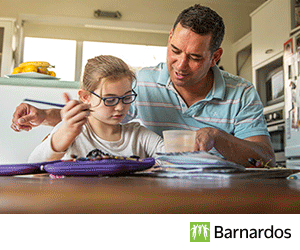Nurses and GPs could improve their delivery of care to newly diagnosed diabetes patients by listening more, repeating less and co-ordinating better, a New Zealand research study has found.
The study by Otago, Auckland and Victoria university physician, nurse and health researchers, just published in the international journal Annals of Family Medicine, follows the interactions that 32 patients had with their GPs, nurses and other health professionals in the first six months after being diagnosed with type 2 diabetes.
Professor Tony Dowell of University of Otago, Wellington, and the lead author, said the study found that despite many health professionals having high communication and technical skill levels, there were still many opportunities to communicate and consult more effectively with their patients.
The researchers videoed the first post-diagnosis consultation and all the patients’ subsequent consultations with health professionals over the six months, which ranged from just one consultation to up to 12 consultations. The time spent with all health professionals over that six months ranged from just 27 minutes for one patient to seven hours and 12 minutes for another patient* (see details below).
The average GP consultation was 22 minutes (range = 6 minutes to 56 minutes), the average nurse consultation was 41 minutes (range = 8 minutes to 95 minutes) and the average dietitian consultation was 24 minutes (range = 17 to 52 minutes).
Dowell said that strengths found by the researchers included high levels of communication skills, enthusiasm to co-ordinate services, and good allocation of time to patients.
But researchers believed optimal care for newly diagnosed patients could be improved in a number of ways, including questioning and listening to patients more in initial consultations to gain insight into what they already knew about diabetes and their personal circumstances.
Researchers found that often initial consultations were driven by biomedical explanations that patients did not relate to. Clinicians also often assumed patients knew little about diabetes, when many already had some diabetes knowledge from other family members or had had pre-diabetes symptoms.
“Patients who have just been diagnosed with diabetes or other long-term conditions bring their own expertise and experience to the situation and healthcare professionals need to listen to this. We need to rethink our usage of technical biomedical language when talking to these patients,” said Professor Dowell.
“Despite the high levels of generic communication expertise by clinicians, many patients found the style and content of health promotion and lifestyle advice did not apply to their lives.”
The researchers found patients were also concerned about the overuse of checklists, and suggested a need for more effective methods of sharing patient information.
The time spent with patients over the first six months was also found to vary considerably – which researchers said was partly due to patients’ varying complexities of needs, but they also found much of the time variation was due to repeating educational information because of a lack of co-ordination between GPs, nurses and other health professionals. The researchers said this meant time that could have been spent on motivation interviewing was often undermined by a duplication of information and advice.
“These findings suggest that time spent in consultations should be reviewed for appropriateness, and health professionals should agree on who will cover various aspects of education so that repetition is avoided unless intended,” found the study.
Dowell said that although there had been a huge amount of research into diabetes, this was the first study to directly observe the patient journey and interactions with different health professionals from the onset of diabetes.
“Our results highlight the important role that communication plays in diabetes management, and the overall commitment of primary care teams to delivering patient care.”
The study authors recommend that clinicians employ a framework for communications with diabetes patients that acknowledges the importance of the patient’s own particular situation and social needs and that time could be allocated more effectively and efficiently when patients see multiple clinicians.
“Our main aim is to improve our patients’ health, and this research shows that appropriate communication with patients is a key component,” said Dowell.
“The research makes us appreciate the importance of listening more and possibly talking less in consultations. It helps with understanding and improving healthcare one sentence at a time.”
*The patient with seven hours and 12 minutes of consultation time had their first post-diagnosis consultation with a nurse and in total had three Care Plus GP/nurse consultations, two nurse consultations, one GP consultation, two podiatrist consultations and two dietitian consultations.























